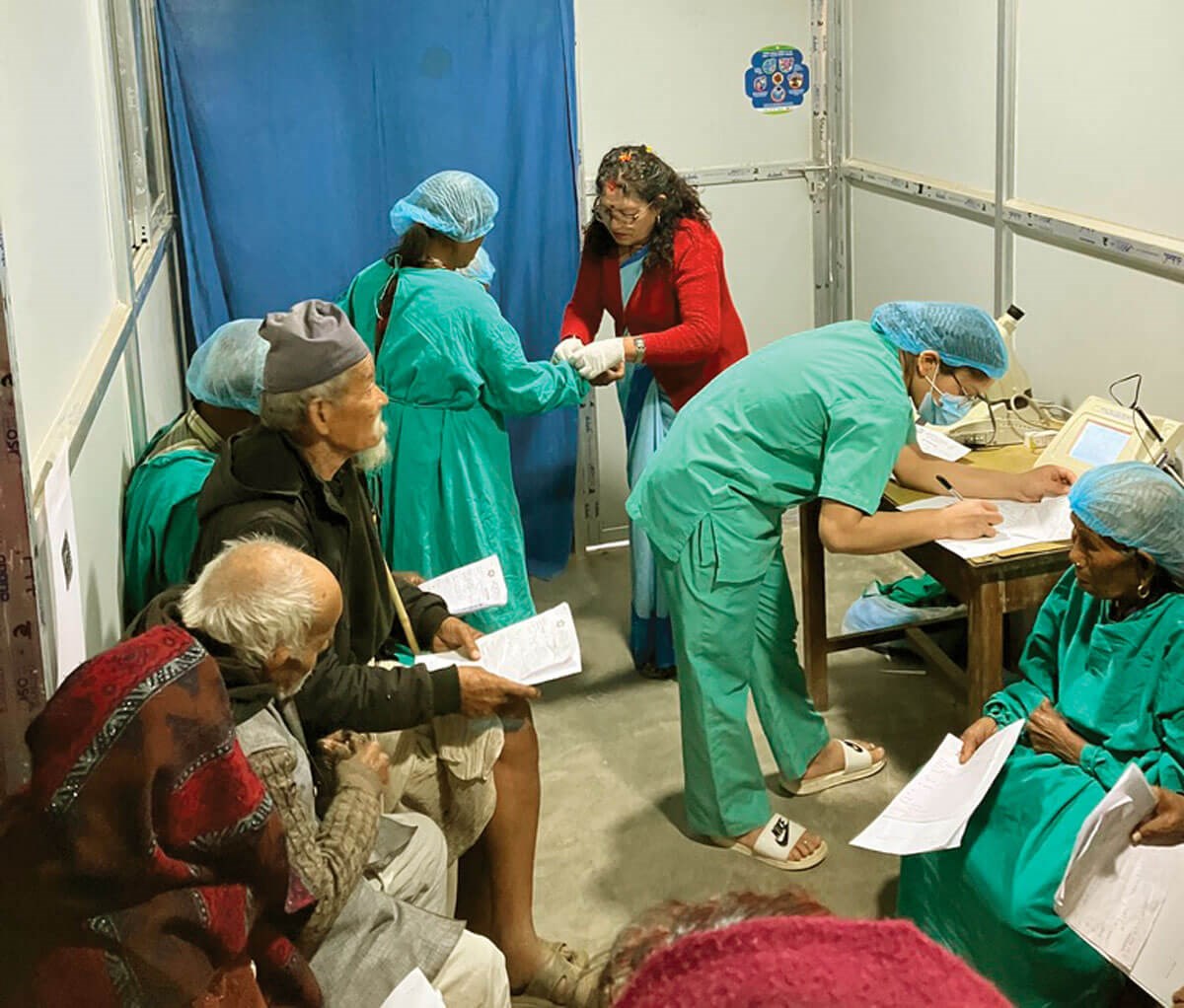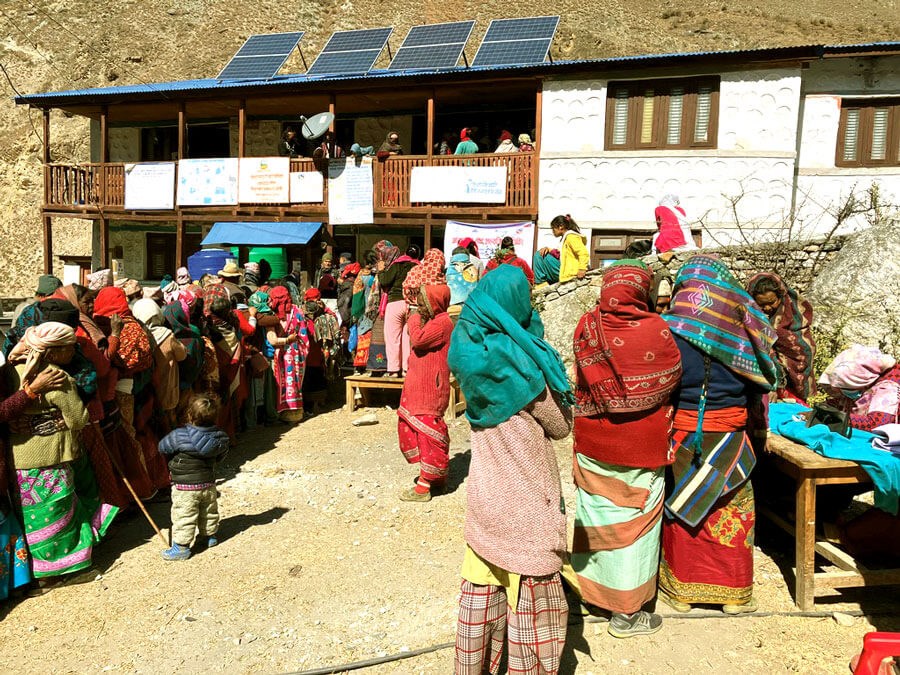On the 29 November 1949, Harold Ridley carried out the first implant of an intraocular lens (IoL). This was the first major breakthrough in the cure of cataract blindness since Jacques Daviel conducted the first extra-capsular extraction 198 years earlier.
Cataract surgery is now probably the most common surgical procedure worldwide, with, it is estimated, 2023 marking the billionth IoL implant. In 1967, Ridley established the Ridley Eye Foundation which maintains his legacy of curing cataract blindness in the developing world.
Our mission is to provide free cataract surgery to the remote communities along the Himalayan Range above 2000m and our work falls across eight of the UN Sustainable Development Goals. As access to eyecare and surgery is limited for these remote communities, and the costs of surgery and travel to facilities in the valleys are, for many, prohibitive, our purpose is to bring free surgery to the patient. But why 2000m?
Well, the answer is that provision for cataract surgery in the valleys and plains is very good, and of a high standard, however it is the remote and often seasonally inaccessible communities in mountain regions who struggle to access eyecare of any type. According to the 2019 RAAB report, 75-80% of preventable blindness in the mountainous areas of Nepal is due to cataracts. Access to this life-changing surgery is difficult for poorer people in remote, high-altitude communities, due to cost, challenging terrain and a lack of medical infrastructure outside the valleys and plains. Preventable blindness increases social and economic pressure on these poor rural populations.

A camp run at Salambhu on the 12 February 2023 by Dhulikhel Hospital.
We operate free, field surgical camps for the benefit of the remote communities in the most remote provinces within the Himalayan regions. Each of our surgical camps can triage up to 1000 patients, of whom up to 150 will require cataract surgery on site. In the last eight months we have run six camps and plan to run three more in the Autumn. In 2023, we have already triaged 3380 patients and successfully operated on 452 cataracts patients in the field. We have also funded free operations on a further 200 patients referred to base hospital for more complicated cases.
We deliver our work in conjunction with two strategic partners and their outreach teams. Both Dhulikhel Hospital and Nepal Netra Jyoti Sangh (NNJS) work in close cooperation with the Nepalese Department of Health. Our aim is to utilise, not duplicate, local expertise and experience, and we are therefore building additional capacity within the Nepalese medical infrastructure, while working within the Nepalese government’s strategic eyecare plan, not in competition with it.

A camp at Tripurakot in the Dolpa region, run by the Himalayan Eye
Hospital in Pokhara on the 14th February 2023.
In practical terms, our surgical eye camps provide treatment for all patients who arrive. Sometimes these are for non-ophthalmic conditions and in these cases, patients are attended to by local primary healthcare teams located in the municipality outreach centres. Our Nepalese surgeons are extraordinarily adept at small incision cataract surgery (SICS). Although phaco procedures are available, they are largely limited to private clinics in the major cities. Public and community hospitals still rely on manual small incision surgery, as do we.
We measure the impact of our work as follows:
- Cost per patient treated is currently valued at £15.00 per patient.
- Cost per cataract operation in the field is £100 per patient.
- Elimination or significant reduction in the financial and physical burden for most cataract patients.
- The social impact of restored sight on the patient and family – an increase in economic productivity.
- Feedback from village leaders on better social and cultural cohesion within the community as a result of the camp, and the scale of requests for further camps.
- Feedback from our partner hospitals on any increasing patient demand at subsequent camps as a result of previous camps.
- Feedback from local health authorities on epidemiological data on presenting or reported cases of preventable blindness.
In summary, the Foundation, like Sir Harold Ridley, relishes challenge and is driven by the desire to reduce preventable blindness in communities where the loss of sight is not just debilitating, but devasting, causing a loss of social status, economic potential and inevitable poverty and isolation.
If you would like to support us or are interested in learning more about how we continue Harold Ridley’s legacy and humanitarian purpose, please see what we do at www.ridleyeyefoundation.org. If you would prefer to reach out, you can contact me through: ceo@ridleyeyefoundation.org
COMMENTS ARE WELCOME






